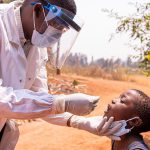
Editor’s note: Dr. Matthews is an assistant professor in the University of Pittsburgh Graduate School of Public Health’s Department of Infectious Diseases and Microbiology. His research is focused upon the disproportionate burden the HIV epidemic has on black gay, bisexual and other men who have sex with men (MSM) in the U.S.
He recently wrote an article for the National Institutes of Health Office of Behavioral and Sciences Research calling for a change in how public health scientists approach research on why HIV disproportionately affects black MSM, who constitute almost a quarter of all new HIV infections in the U.S. An excerpt appears below and can be read in its entirety here: https://obssr.od.nih.gov/revolutionary-acts-how-the-discussion-of-hiv-risk-matters-for-the-health-of-black-men-who-have-sex-with-men/.
—
Upon their HIV infection Black MSM take longer to become diagnosed, and are ultimately less likely to achieve viral suppression, the health state achieved upon sustained successful antiretroviral treatment. This health state not only keeps HIV-positive persons healthy, but also doubles as an effective way to prevent sexual transmission of HIV to HIV-negative partners. Yet this alone doesn’t sufficiently explain the stark disparities we see in HIV infection. To understand that infectious disease epidemiology requires we also look at sexual networks. There are exceptions of course, but generally, the data show that we all tend to choose sexual partners who are more like us with respect to a variety of characteristics, including race.
So to tie this all together – what is responsible for HIV disparities if not differences in individual risk behaviors? Here’s what the research has demonstrated:
- MSM are more likely to have sex with men of their same race than other races
- Therefore, Black MSM are more likely to have sex with someone living with HIV
- Black HIV-positive MSM are less likely to be virally suppressed
- HIV infection spreads quickly in a smaller more interconnected network
So while networks appear associated with health disparities, there remains a dangerously large gap between public health science and public health practice. Upon reviewing the explosion of research about the sexual networks of Black MSM in the last decade, we decided it was appropriate to critique how public health was communicating sexual network research. In short – scientists frequently have discussed Black MSM sexual networks and the high HIV prevalence within them as the cause for these disparities rather than an effect of those systems truly responsible for this epidemic.
But how much does the way we simply talk about something matter? A great deal.
Visit https://obssr.od.nih.gov/revolutionary-acts-how-the-discussion-of-hiv-risk-matters-for-the-health-of-black-men-who-have-sex-with-men/ to read the rest of the article.







